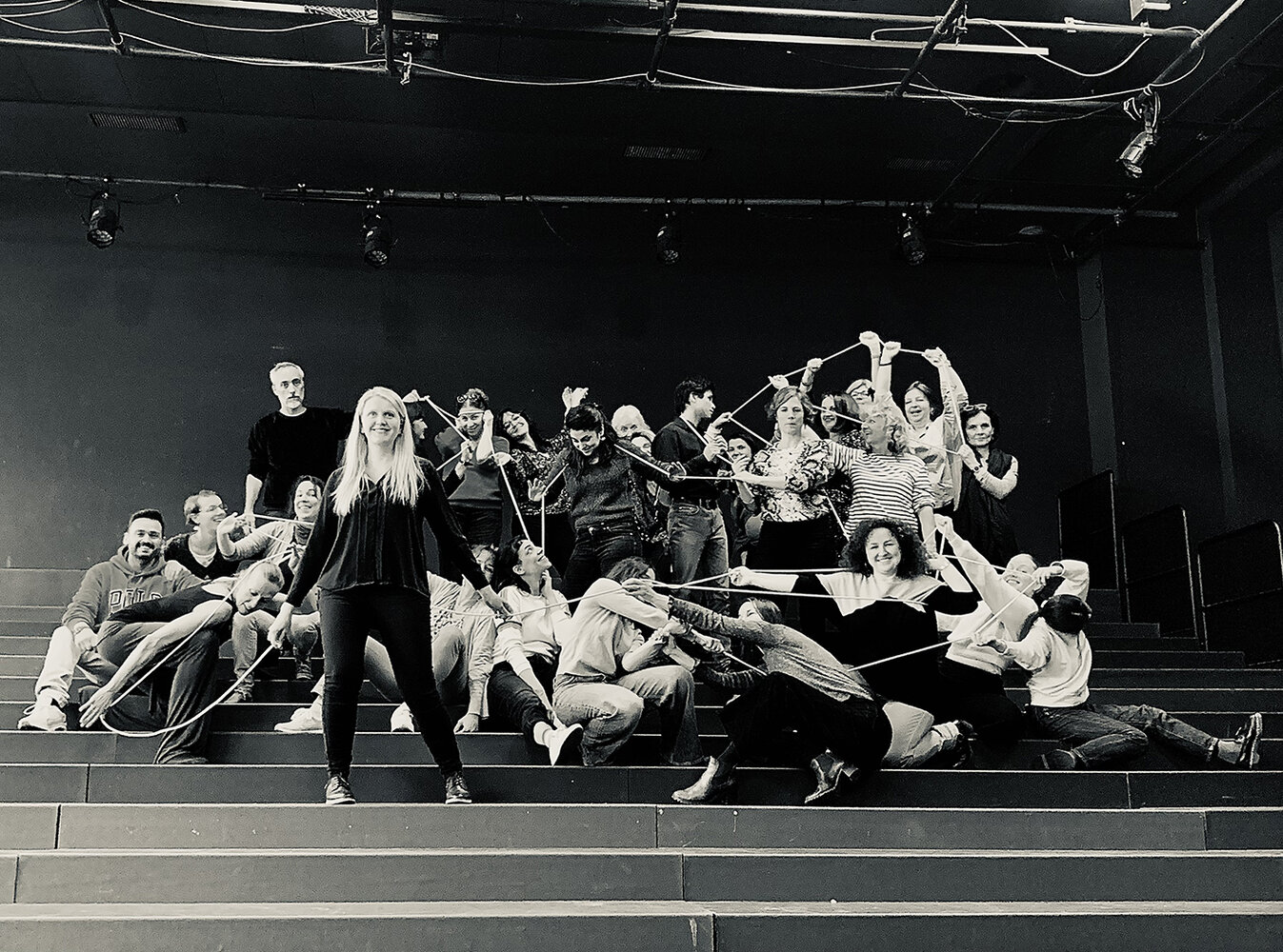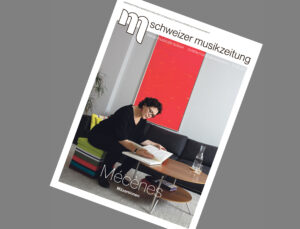From roots to nature, Jaques-Dalcroze rhythm continues to evolve
Meeting Hélène Nicolet, new Director of the Institut Jaques-Dalcroze (IJD) since August 15, 2023, succeeding Silvia Del Bianco, we harvested the seeds and future plantings of her guiding principles. We discussed the Institute's current and future event themes, its pedagogical principles, and the links between Dalcrozian thought and management.

In the past, and still today in the perception of neophytes in the field, Jaques-Dalcroze pedagogy has been the victim of stereotypes, and its "pedagogical recipe" was regrettably locked in a "black box", a metaphor for an inaccessible inner workings.. In spite of its innovative spirit and adaptability to many fields, rhythmics could suffer from a simplistic image of "rhythmic dance", which is one of its foundations. And yet, at the heart of Jaques-Dalcroze's cross-disciplinary pedagogical approaches lies a learned science with multiple socializing qualities that enable harmony between body and mind. Marie-Laure Bachmann, former director of the Institut, wrote in Education through music and for music Jaques-Dalcroze: "For Jaques-Dalcroze [...] it's the individual who counts [...] it's a question of putting the individual in possession of all his means of acting and reacting. He must be able to cope with all situations; he must be able to choose from the range of his possibilities the one that seems most appropriate to him."
What's the relationship between rhythm and management?
Rhythmics is a science that activates the faculties of adaptation, incitement-inhibition, reaction (question-answer), creativity and collaboration, which are essential to cognitive development and nervous sensitivity, leading to emotional regulation of the child's and adult's social faculties. Hélène Nicolet explains: "The sense of collaboration and adaptation is a central element of Jaques-Dalcroze pedagogy, through improvisation, sensory and bodily reaction, listening, and so on. Today's professional musicians need to be versatile, mobile and flexible, as the arts are increasingly multidisciplinary. The artist must possess a sense of adaptation, mobility and innovation, which are fundamental aspects of our musical education, particularly through group improvisation. Our collaboration with the Department of Music and Movement at the Haute école de musique is in line with this pedagogical research in the service of professional musicians and/or future teachers. In my role as director and manager, I don't pretend to master all these principles, but I do try to generate this creative collaboration through collective intelligence, an eminently Dalcrozian approach. The flexibility and openness of our staff are qualities inherent in rhythmic training, and are great assets for teamwork, even in the intense moments associated with the organization of events, brainstorming and in the service of interaction". Hélène Nicolet is also involved in the Confédération des écoles genevoises de musique (CEGM) as coordinator of the council of the eleven associated schools.
Linking culture, nature and democratic education
So the black box is no longer so mysterious, and Hélène Nicolet's "toolbox" now includes a cultural approach to teaching through extramural activities open to all. She explains: "Nature is a leitmotiv which has inspired our students' performances over the past few years: linking culture, pedagogy, nature and democratic access to rhythm and music is crucial. Today, the relationship with nature responds to an important social and political reality. Emile Jaques-Dalcroze was a forerunner in the relationship between listening to sound and nature." It's also worth noting that the philosophical principles of the union of body and mind were a favorite subject during his musical training, against the idea of the separation of body and mind of certain thinkers. "In our 'agenda événements 100 % famille', artistic partnerships with institutions or guest artists are regularly programmed, since the impetus of our Institute's centenary in 2015. The range of shows and performances for young and old alike is equally popular. Transgenerational activities are a great success, amplifying family ties through activities outside the daily routine, such as family dance workshops for 0-99 year olds, or listening to birdsong in nature, for example. What's more, improvisation is a means of expression that stimulates the ability to build on elements within our immediate reach. This practice will also be central to our future events and shows, initiated with the wishes for 2024: 'Improv with body and heart'. With this in mind, the Institut Jaques-Dalcroze also offers free courses (without exams), and a sector entitled Piano improvisation collectif (PIC). Stimulating students' artistic sense and building on their input with guidance is at the heart of our approach. With the teams, I try to apply these approaches while deciding on the direction I'm going to take. This requires a strong commitment on the part of all those involved in the institution.
Future prospects and scientific research
The integration of scientific research into the teaching of rhythmics is necessary and fundamental for the future. As the international center of the Jaques-Dalcroze method, the Institut Jaques-Dalcroze must be a laboratory of expertise. The activities developed with the scientific research carried out in collaboration with the HUG (Geneva University Hospitals) foster innovation by opening up new fields of application. The IJD is committed to developing its offering for an increasingly diverse public. For example, the Rhythm and Health department, inaugurated in 2022, is divided into four sections: rhythm for seniors, health, people with disabilities and integration. In the same vein, courses for mothers and children are given in collaboration with AMIC (Association de Médiatrices Interculturelles); others are aimed at deaf and hard-of-hearing children (with CCS), or blind and partially-sighted children (with CPHV in Lausanne). "The next scientific study I intend to carry out will highlight the contribution of musical learning to children's cognitive development, and the value of learning through movement," concludes Hélène Nicolet. We would also like to quote Jaques-Dacroze, the forerunner of a continuous questioning of pedagogy over time: "No evolution, no progress can be accomplished without the help of youth!"








